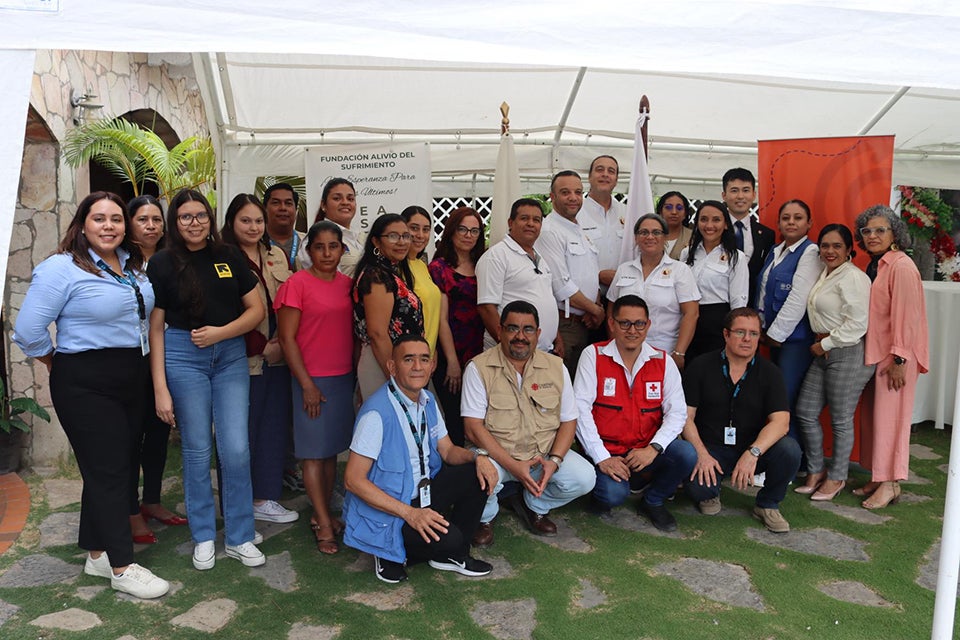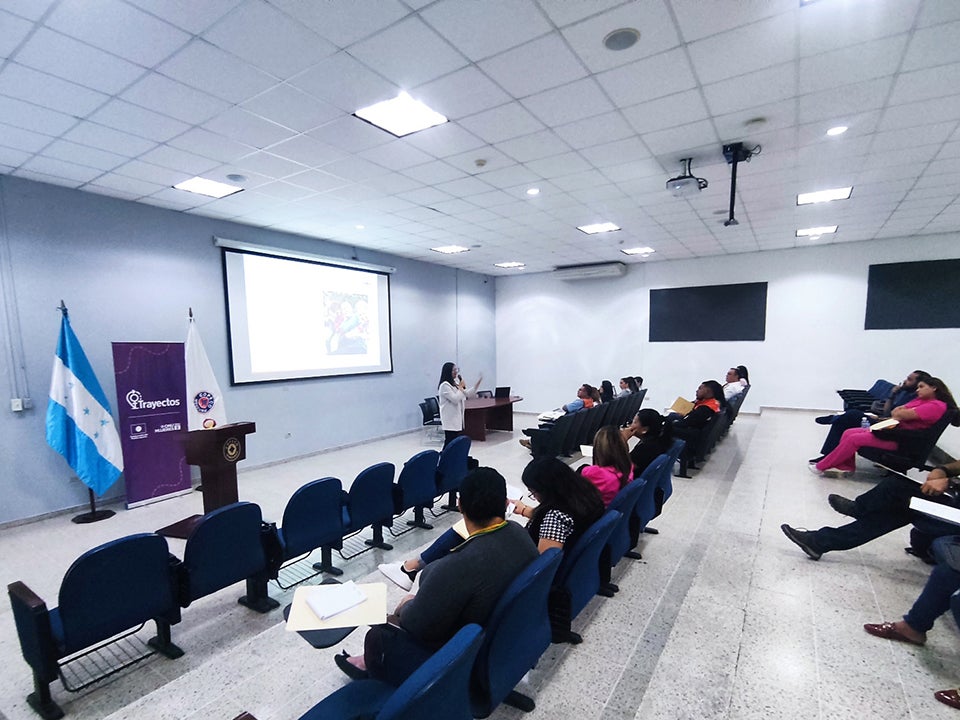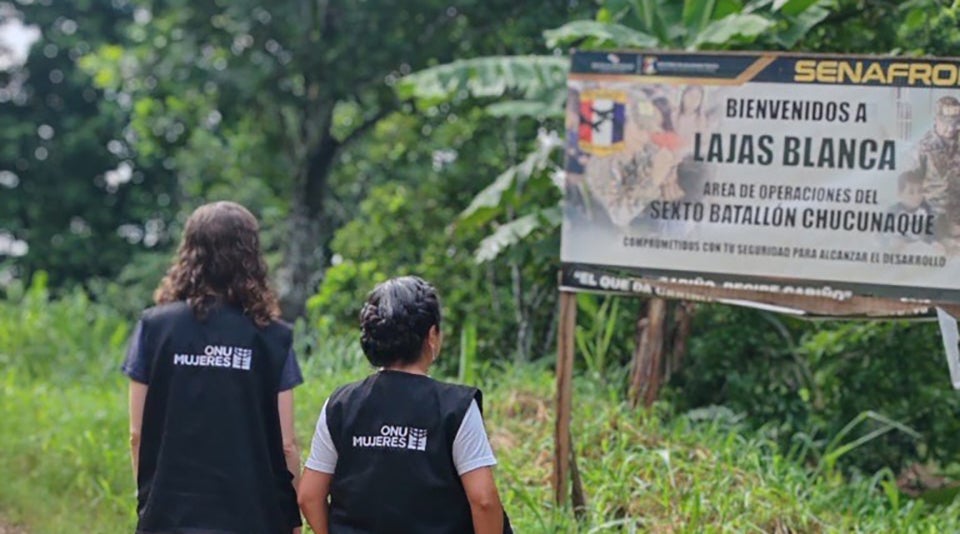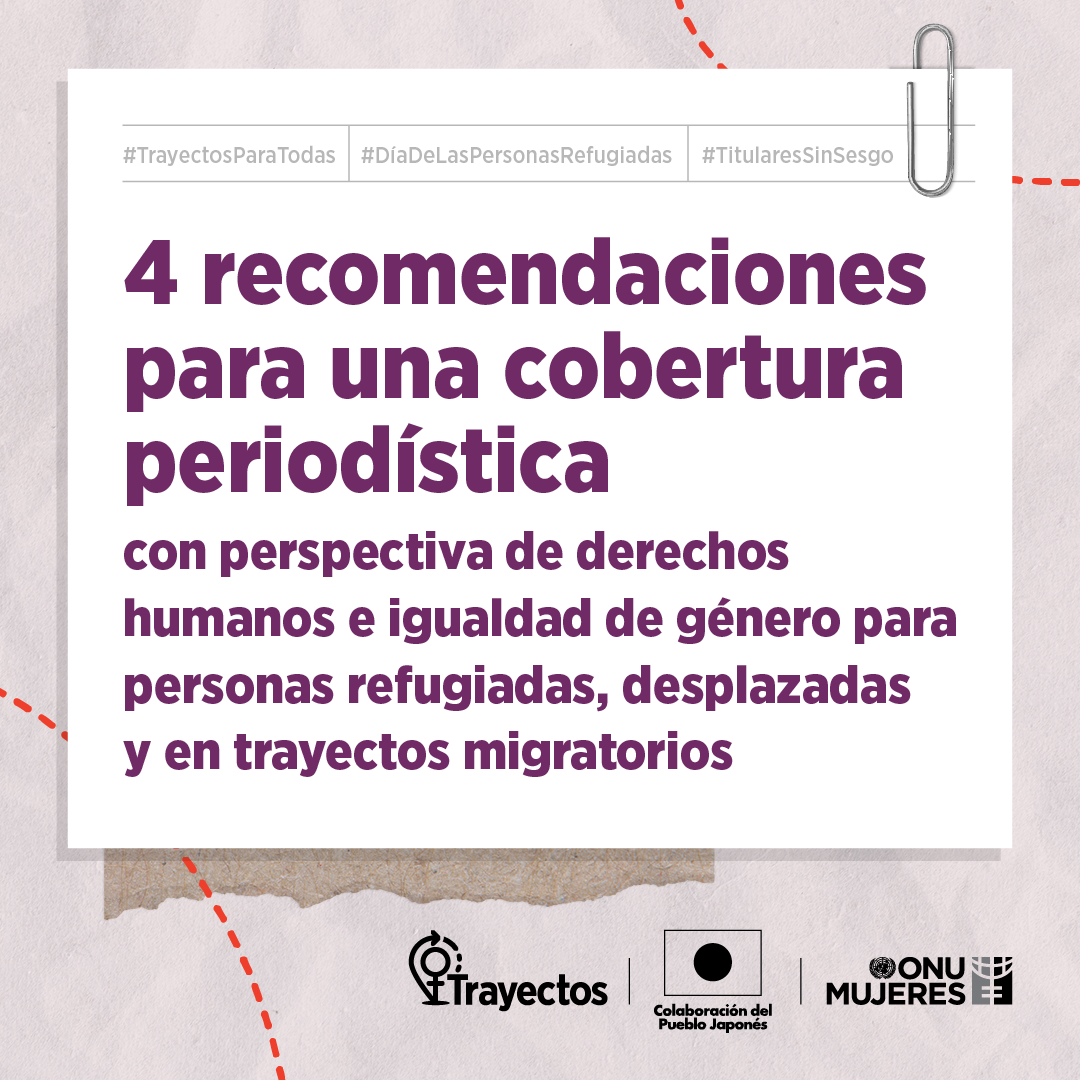Japan and UN Women Promote Attention at the Borders of Honduras to the Situation of Women in Human Mobility
Date:
Newsletter 02 – HONDURAS
Japan and UN Women Promote Attention at the Borders of Honduras to the Situation of Women in Human Mobility

Japan, UN Women, Agua Pura para el Mundo (Pure Water for the World), and the Fundación Alivio para el Sugrimiento (Relief of Suffering Foundation) have inaugurated the Journeys (Trayectos) programme in Honduras. The programme aims to guarantee the rights of women in mobility during their transit through Central America. Funded by the Government of Japan and implemented in Costa Rica, Honduras, and Panama, Journeys seeks to close critical gaps in women's leadership and ensure their equitable access to protection amidst unprecedented human displacement in the region.
During the launch event in El Paraíso, the organizations presented their action plan and a diagnosis of human mobility in Honduras and the region. The flow of migrants in the Central American corridor has tripled between 2022 and 2023, making it one of the most dynamic and complex routes globally. In the first two months of 2024, 49,357 refugees and migrants entered Honduras, an increase of 146% compared to February 2023. Further south, Panamanian authorities recorded more than 501,297 crossings through the Darién by the end of November 2023.
The growing presence of women, girls, and LGBTIQ+ people in transit highlights the need for gender-sensitive approaches that offer help and protection throughout their journeys and strengthen their leadership capacities to participate in decision-making that affects their lives.
Learn more about this event here.
Journeys Joins the South-East Border Response Group in Honduras and Provides Training to Immigration Authorities

UN Women presented the Journeys programme to the 35 organizations that form the South-East Border Response Group, a coordination space for the Humanitarian Network addressing the human mobility crisis on the southern border of Honduras.
They also participated in a training session on prevention, risk mitigation, and attention to cases of gender-based violence, as well as the protection of women, children, and adolescents in temporary accommodations. This session, aimed at field staff of the Permanent Contingency Commission (COPECO), employed a training methodology for trainers, hoping to reach over 200 COPECO specialists nationwide. UN Women focuses on strengthening capacities specifically in the management and planning of temporary accommodation and shelters with a gender perspective.
In addition, UN Women held a capacity-building workshop on Gender-Based Violence, Masculinities, and Emergencies in Honduras, aimed at communicators from various State Secretariats. Through this process, more than 140 communicators improved their capabilities in addressing media and government communication strategies on the subject.
UN Women Collects Information for Gender Alerts at Borders

From June 3 to 30, UN Women, along with allied organizations of the Journeys programme, will travel the borders of Panama and Costa Rica to strengthen their work and identify coordination needs with authorities, gathering gender-based evidence for the preparation of reports and analyses in human mobility situations.
During a visit by the Journeys team to the borders of Panama and the southern border of Costa Rica, UN Women emphasized the integration of a gender perspective to address the needs of women and girls in human mobility situations.
This visit, part of the preparation of a Gender Alert on the Darién route to Costa Rica, included meetings to improve coordination with organizations working for women's rights in both countries, such as the Ministry of Health, the Ombudsman’s Office, and the National Border Service of Panama, as well as organizations like the National Coordinator of Indigenous Women of Panama (CONAMUIP), HIAS, UNHCR, and IOM.
This first phase of strategic meetings between UN Women and partners working at the borders is part of a planning process to develop Gender Alerts that provide information to decision-making authorities, the United Nations system, and civil society organizations that offer services and care to people in human mobility in these countries.
4 Recommendations for Journalistic Coverage with a Human Rights and Gender Equality Perspective for Refugees, Displaced People, and Migrants

In the framework of International Refugee Day, UN Women, through Journeys and the "Headlines without Bias" campaign, launched four essential recommendations to improve media coverage of refugees, displaced people, and migrants.
Through the publication "4 Recommendations for Journalistic Coverage with a Human Rights and Gender Equality Perspective for Refugees, Displaced People, and Migrants," the Journeys initiative is committed to media representation with humanity and dignity, moving beyond stereotypes. "Headlines without Bias" is a campaign by UN Women to highlight the gender biases that violate women's rights in the media. Through this initiative, UN Women works with journalists in Latin America to ensure fair and equal representation of individuals in various media. The collaboration with Journeys sets a precedent to emphasize balanced representation of refugees, displaced persons, and migrants.
Access the full article here.